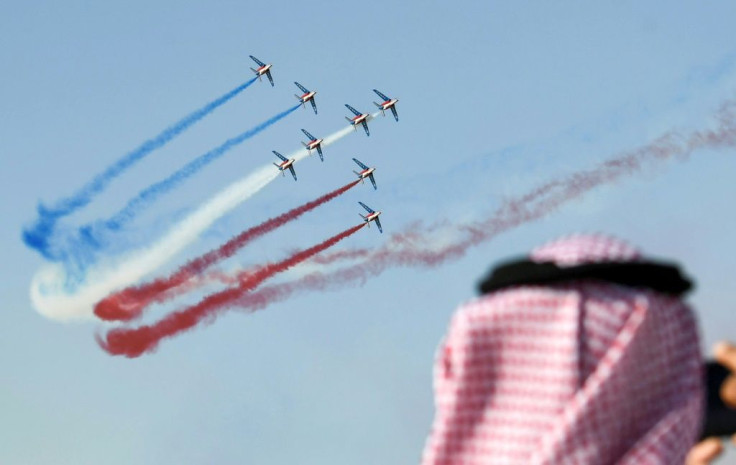Flight Facts From The Dubai Airshow

Global aircraft rivals Europe's Airbus and US manufacturer Boeing secured tens of billions of dollars worth of deals at the biennial Dubai Airshow which ended on Thursday.
Here are five main standouts from the 2019 event:
Emirates, the Middle East's largest carrier, made massive cutbacks to its initial commitments with the industry's two biggest names.
The Dubai-based airline signed a $16-billion deal on Monday for 50 Airbus A350-900 widebody aircraft, replacing a larger committment signed earlier as part of its decision to stop buying the A380 superjumbo after struggling to fill its capacity of 500-850 passengers.
With Boeing, Emirates on Wednesday signed a firm order for 30 787 Dreamliners worth $8.8 billion at list price -- 10 aircraft fewer than the commitment it made two years ago.
The airline, facing slowing economies in the Gulf, also trimmed a mammoth contract for 156 Boeing 777X aircraft it signed six years ago to 126 amid delays in delivering the new long-range model.
Emirates, the largest customer for the Airbus A380 and Boeing 777, has shaved at least $26 billion from its commitments so far this year.
Airbus has capitalised on Boeing's woes with its 737 MAX, bagging two major deals with Emirates and Air Arabia worth $30 billion, in addition to several smaller deals.
As well as the Emirates $16 billion order, the UAE low-cost carrier Air Arabia placed an order for 120 Airbus A320s and A321s worth $14 billion.
Saudi Arabia's privately owned low-cost carrier flynas, European budget airline EasyJet and Air Senegal also made agreements with Airbus.
Flynas ordered 10 A321s, EasyJet ordered 12 Airbus A320neo narrow-body jetliners, and Air Senegal signed a memorandum of understanding to buy eight of the new A220s.
General Electric said its leasing arm, GECAS, had signed an order for 12 medium- to long-range Airbus A330neo aircraft and 20 A321XLRs.
Boeing's 737 MAX did get a boost this week after fresh orders for the plane that has been grounded since March after two crashes.
The aviation giant said on Tuesday it obtained a "firm" order with an unnamed airline for 20 of the 737 MAX model for $2.3 billion.
The announcement follows an order for 10 MAX planes from Turkey's SunExpress announced on Monday, and a letter of intent on Tuesday from Kazakhstan's Air Astana for 30 aircraft.
Despite these, orders for Airbus's small-sized family of A320s have overtaken those for the Boeing 737 for the first time. A320 orders have hit 15,400, against under 15,200 for the 737.
The 737 orders are in addition to Boeing's Dreamliner deal with Emirates.
Abu Dhabi national carrier Etihad, one of the region's three major carriers along with Emirates and Qatar Airways, refrained from placing any new orders at the show.
Etihad has posted a total of $4.67 billion in losses for the past three years and is expected to continue making a loss for at least three more years.
Earlier this year, the airline scrapped deals from Boeing and Airbus worth over $20 billion.
The two main aircraft makers forecast that Middle East countries will invest some $1.5 trillion in commercial aviation over the next 20 years.
Boeing and Airbus officials said $725 billion would go on the purchase of around 3,200 aircraft and another $790 billion on aviation services.
Air traffic in the Middle East is forecast to grow by between 5.1 percent and 5.6 percent a year until 2038, the manufacturers said.
© Copyright AFP 2024. All rights reserved.





















